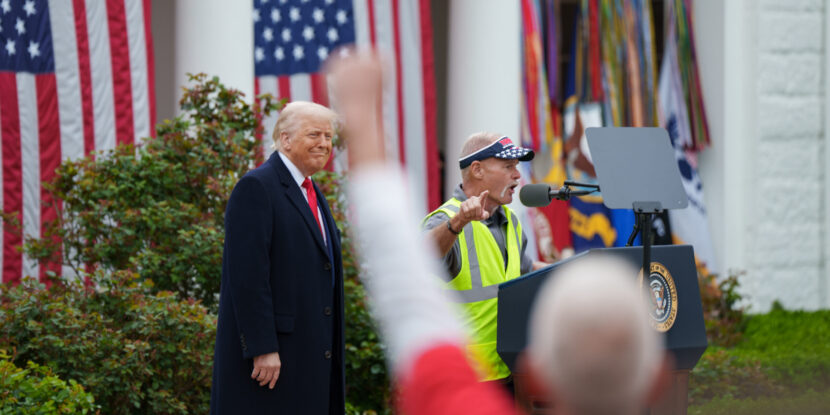
PULSE POINTS:
What Happened: Chief Pentagon Spokesman Sean Parnell announced a groundbreaking outreach program to reinstate approximately 8,700 service members discharged for rejecting the COVID-19 vaccine, offering them a clear path back to duty.
Who’s Involved: President Donald J. Trump, Defense Secretary Pete Hegseth, Sean Parnell, and 8,700 affected veterans.
Your free, daily feed from The National Pulse.
Where & When: Nationwide, starting April 7, 2025, with a reinstatement deadline of February 7, 2026.
Key Quote: “Their service mattered then, and it still matters now. We’re ready to welcome them back!” Parnell declared on X.
Impact: This reversal of Biden-era policy could rebuild trust with sidelined military families and bolster manpower.
IN FULL:
Pentagon spokesman Sean Parnell has announced the Department of Defense is rolling out the red carpet for roughly 8,700 service members who were kicked to the curb by former President Joe Biden for refusing COVID-19 vaccines. “We’re committed to doing right by those who were affected by the Department’s former COVID-19 vaccination policy,” Parnell posted on X (formerly Twitter). “For the roughly 8,700 service members who were separated solely for refusing the vaccine, this is an opportunity to return to service—and we want them to know the door is open.”
The Pentagon is launching a full-court press to reach all affected veterans with “clear information on how to pursue reinstatement.” They have until February 7, 2026, to decide whether to return to service. Parnell assured the public that the Department is “working hard to make sure each of them receives clear information and support throughout the process.”
Parnell, a retired Army Ranger with a Purple Heart and a Trump loyalist, said of the dismissed veterans, “Their service mattered then, and it still matters now. We’re ready to welcome them back!”
The Trump administration’s policy flip undoes the Biden government’s vaccine mandate, which saw thousands of battle-tested troops discharged at a time when recruitment was already tanking.
READ:
We’re committed to doing right by those who were affected by the Department’s former COVID-19 vaccination policy. For the roughly 8,700 service members who were separated solely for refusing the vaccine, this is an opportunity to return to service-and we want them to know the…
— Sean Parnell (@SeanParnellATSD) April 7, 2025

PULSE POINTS:
❓What Happened: American workers are getting behind President Donald J. Trump’s tariff plan to help bring jobs back to America.
👥 Who’s Involved: President Trump, United Auto Workers, Steel Manufacturers Association, National Cattlemen’s Beef Association, Southern Shrimp Alliance, National Council of Textile Organizations, and various small business owners and industry leaders.
Your free, daily feed from The National Pulse.
📍 Where & When: Across the United States, April 7.
💬 Key Quote: “To see those plants close, one after another, and just sit idle and then fall into disrepair and collapse, they become abandoned buildings… I’m glad to see Donald Trump finally standing up saying he’s going to do something about it,” said retired auto worker Brian Pannebecker.
⚠️ Impact: The Trump tariffs receiving support from industry figures and working-class Americans signals renewed hope for domestic manufacturing and economic growth, despite outcry from financiers.
IN FULL:
President Donald J. Trump’s robust tariff initiative, aimed at countering the impact globalization has had on American industries, is being praised by workers across America. The new direction is garnering support from several industry groups, including the United Auto Workers, Steel Manufacturers Association, and the National Cattlemen’s Beef Association, as well as local business leaders.
Support from American industry is evident across the nation. Illinois cattle farmer Alan Adams highlighted the long-standing issues with foreign tariffs, particularly in beef, noting, “We’d like the same chance to sell the great taste of American beef.”
Acy Cooper, a fourth-generation shrimp producer in Louisiana, underscored the importance of strong domestic production for national resilience, saying, “We’ve been suffering for over 20 years … this country can’t feed itself, this country can’t sustain its own way of life. If we get into a war with China, one of our big importers … how are we going to feed the people of this country? … It has to come [from] within this country.”
In Michigan, retired auto worker Brian Pannebecker said, “To see those plants close, one after another, and just sit idle and then fall into disrepair and collapse, they become abandoned buildings… I’m glad to see Donald Trump finally standing up saying he’s going to do something about it.”
Further support comes from business leaders such as Brian Riley, CEO at Guardian Bikes, who perceives Trump’s trade policy as a welcome shift away from a status quo that “prioritized offshoring production and cheap consumption.”
President Trump is pushing forward with his plan, emphasizing his desire to bolster American industries, create fair trade opportunities, and ultimately enhance the livelihoods of American workers. He urged Americans to stay strong through the market jitters attributed to the tariffs on Monday morning, writing on his Truth Social platform, “The United States has a chance to do something that should have been done DECADES AGO. Don’t be Weak! Don’t be Stupid! Don’t be a PANICAN (A new party based on Weak and Stupid people!).”
show less

 2 months ago
5
2 months ago
5








 English (US) ·
English (US) ·